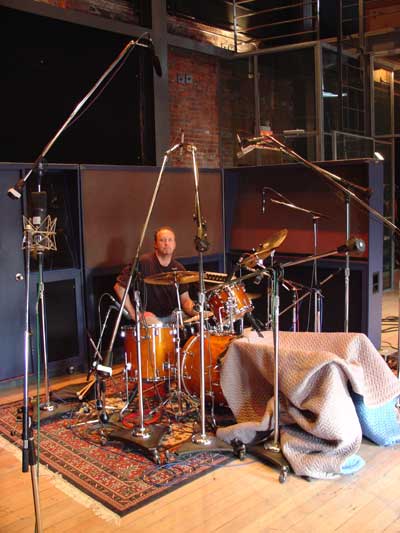Studio Drummer – Pressure situations
DEALING WITH PRESSURE
The environment a session musician exists in is most often unlike that of being in a band or being strictly a ‘live’ musician. There are different types of pressures that apply to this environment.
Being in a band is a very familiar and most often, a rehearsed situation. You don’t necessarily need reading ability to be in a band. And similarly you don’t need the ability (learned tolerance as I would call it) of walking into a pressure-situation without knowing anything about what you’re walking in to.
*I USE THE TERM “LEARNED TOLERANCE” BECAUSE YOU NEVER REALLY GET USED TO IT OR COMFORTABLE WITH IT, NOR SHOULD YOU.*
It is something that you can learn to deal with though and in your own way prepare for.
For example, if I have a session coming up that is causing me anxiety I never have coffee on the day of that session. If I know the players, I will work emotionally and mentally to diffuse issues of insecurity and tension.
These types of issues, as in every relationship, tend to crop up. If you’re not prepared for relational issues and don’t have your game face on so to speak, you can be put in vulnerable positions.
My intention when I walk into the session is to be prepared on every level, not only playing and reading but emotionally prepared as well. That’s just one small example and of course everyone is different and handles stress in a different manner.
*THIS KIND OF PERFORMANCE ANXIETY CAN BE PAINFUL AND YET IT’S A HELPFUL PROCESS THAT RAISES YOUR ABILITY TO A HIGHER LEVEL OF FUNCTIONALITY.*
There are times when this can be very intense. You’ll lose some sleep I guarantee it! When I played with Ray Charles I definitely lost some sleep as I did with the David Foster Band. When we backed up Toto I most definitely lost some sleep!
The standards are very high, about as high as they can get. But something happens in these situations. You’re so aware and so on. It’s a place you can’t get to on your own without this tremendous back pressure.
But back to the studio;
A typical recording session would be this. You are given the session start time and place. From here you typically don’t know;
The complexity of what you’re playing…
What particular style you’re playing…
What session players you’re playing with…
How your kit and/or tuning will translate in that particular studio..
If I’m playing a studio’s drum kit, what is the condition, tuning, hardware like etc…
Who’s producing or engineering, what’s the artist/client like…
If you could perhaps sum up the experience of being a session drummer or session musician in a sentence, from my perspective it would be this;






